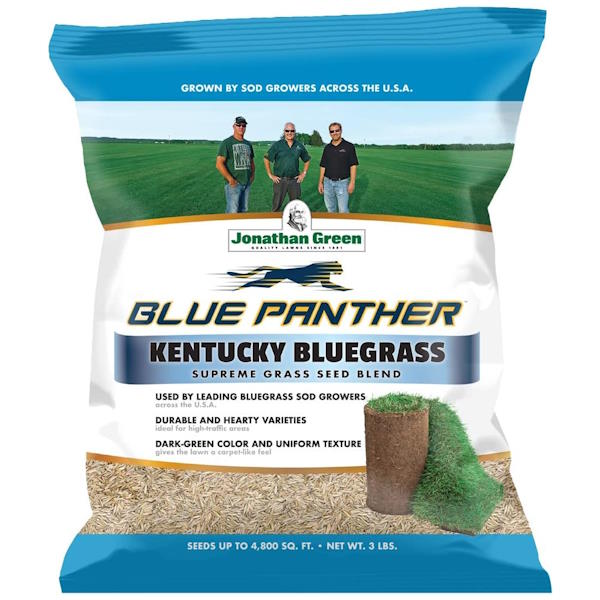Lawn expert reveals when to sow grass seed for the best results in different climates
Discover the best times of year to sow both warm and cool season grasses - and how you can overcome some of the potential challenges

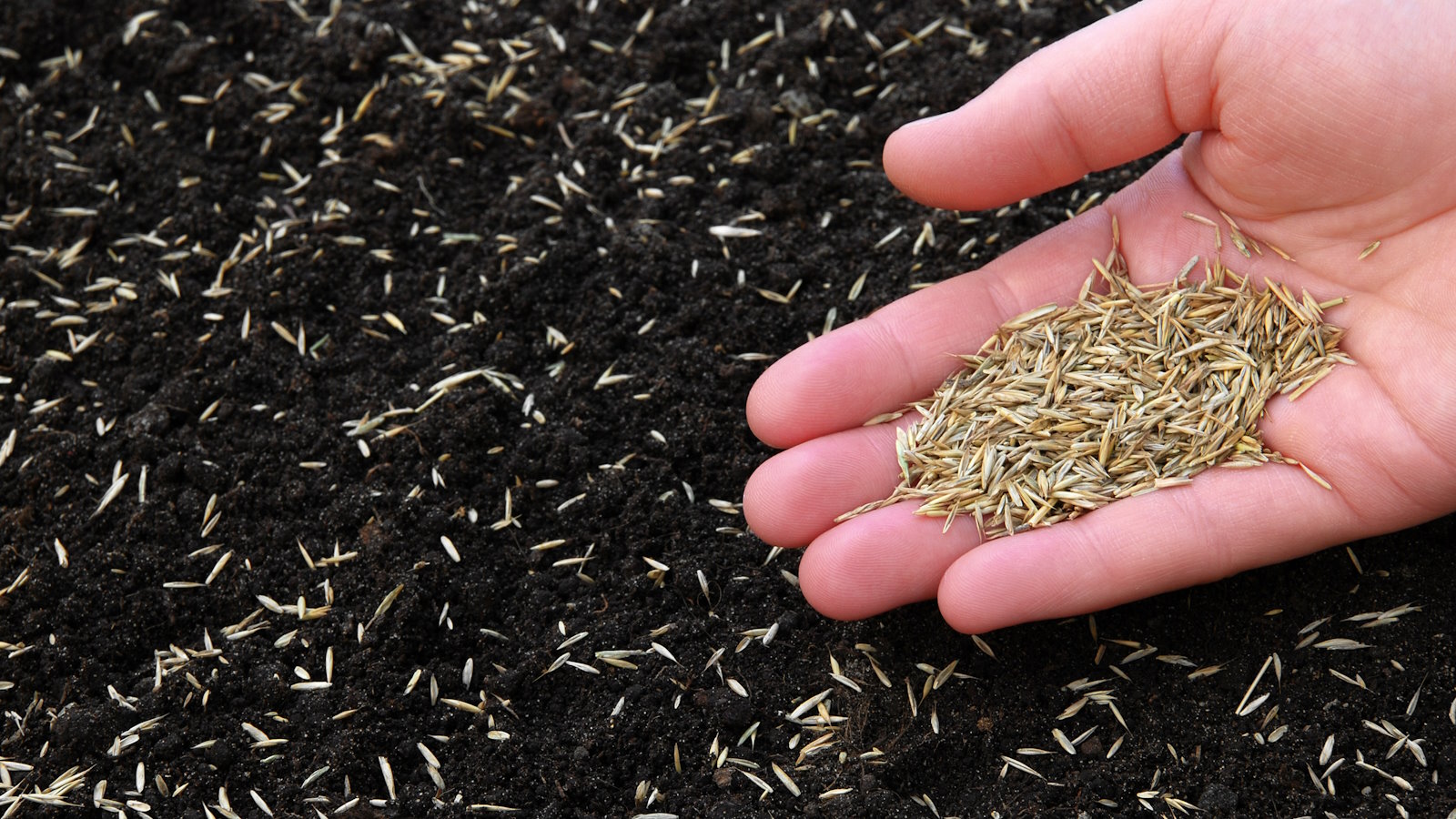
Design expertise in your inbox – from inspiring decorating ideas and beautiful celebrity homes to practical gardening advice and shopping round-ups.
You are now subscribed
Your newsletter sign-up was successful
Want to add more newsletters?

Twice a week
Homes&Gardens
The ultimate interior design resource from the world's leading experts - discover inspiring decorating ideas, color scheming know-how, garden inspiration and shopping expertise.

Once a week
In The Loop from Next In Design
Members of the Next in Design Circle will receive In the Loop, our weekly email filled with trade news, names to know and spotlight moments. Together we’re building a brighter design future.

Twice a week
Cucina
Whether you’re passionate about hosting exquisite dinners, experimenting with culinary trends, or perfecting your kitchen's design with timeless elegance and innovative functionality, this newsletter is here to inspire
If you want to sow a new lawn, or fill in some unsightly bare patches, then it is important to know the right time for sowing grass seed. Getting the timing right can play a key role in the seeds germinating successfully and influence the amount of effort you need to put in to help them get established.
The best times of the year when to sow grass seed are going to when the ground temperature is ideal for successful germination and there is lots of moisture around to make sure the seedlings get a good start to life.
The ideal time to plant grass seed can vary, depending on your local climate and the type of grass you are sowing. Gardeners in warmer climates are going to be able to sow grass seed earlier than those in cooler areas.
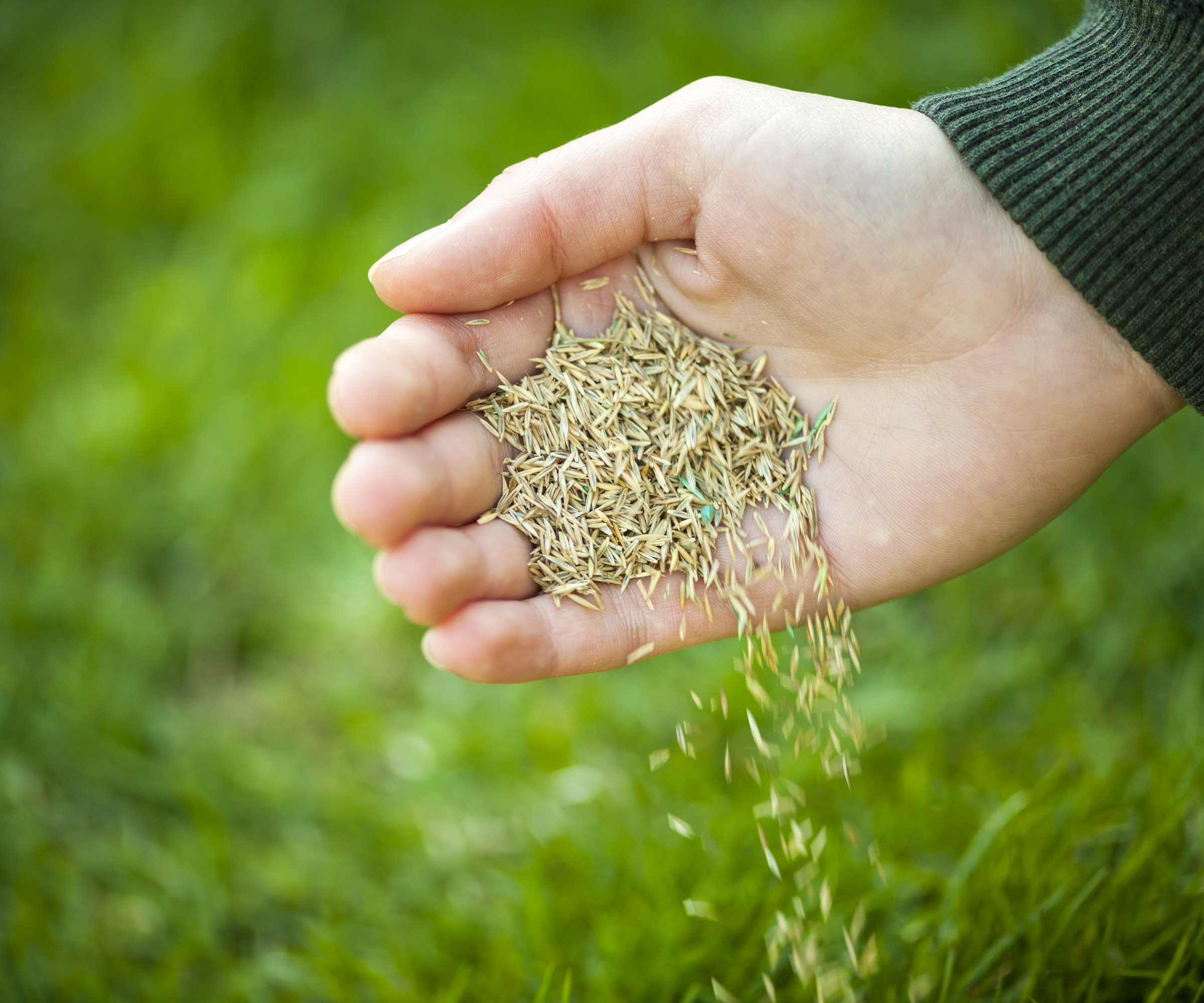
Grass seed can be sown by hand or by using a spreader
When is the best time to sow grass seed
Whether sowing a fresh lawn or overseeding some patches in an existing lawn, there are better times than others for planting grass seed. The best times for sowing grass seed tend to be in spring or fall, as at these times the temperatures are right and the ground is moist to allow for quick germination.
Weather conditions will influence the best time to sow. While you realistically can sow seed in summer and winter, it will be a challenge and the end results will likely not be comparable to when completing the task in spring or fall.
Sarah Jameson, the founder and owner of Lawn Chick, says that her favorite time to sow grass seed is in early fall in her northern climate.
‘The soil temperatures are still warm from the summer which aids in germination, but the air is cooler and there’s more rainfall, which allows new grass to get established before winter dormancy,’ says Sarah.
Design expertise in your inbox – from inspiring decorating ideas and beautiful celebrity homes to practical gardening advice and shopping round-ups.
The lawn expert reassures that, in both northern and southern climates, the spring months from March to May can be a great time in which to sow grass seed. However, she warns that sowing grass seed in spring can come with the ‘challenge of competition’ from many annual weed seeds that will also start sprouting at the time that the grass seed starts to grow.
You can get pre-emergent herbicides, but caution should be exercised as many products will block both grass and weed seeds when applied. It is advisable to use products that are safe for seeding projects and will not inhibit your grass seed from germinating. One such example, which the expert recommends, is the Scotts Turf Builder Triple Action Built For Seeding, available at Amazon.
You do not ideally want to sow grass seed in the peak of the summer heat. Grass seed can be sown in late spring, and even into early summer, but the later you sow the more competition the newly planted seed will face from weeds and the more pressure you will be under to regularly irrigate to ensure it germinates successfully. Even the fastest-growing grass seed will need you to regularly water the lawn when sown in summer, or you may find your grass seed not germinating.
Sarah claims: ‘In the fall you’ll face less pressure from annual weeds, and the biggest challenge you’ll face is timing your seeding properly. I recommend seeding at least six weeks before your first frost.
‘Late September is the ideal time where I live, but some homeowners may choose to do their fall seeding as early as late August, or as late as October.’
Try to avoid leaving it too long into fall to sow. Grass can grow after a frost, but if the seedling has not put out a good root structure by the time the frost arrives it can be killed. Make sure to know your frost dates and work backward so you are allowing the grass six weeks to germinate and establish before the first frost is set to arrive.

Sarah Jameson is the founder and owner of LawnChick.com, a trusted lawn care blog that educates millions of homeowners each year to help them achieve the greenest, healthiest lawn. Sarah’s blog is read by over 2 million homeowners each year.
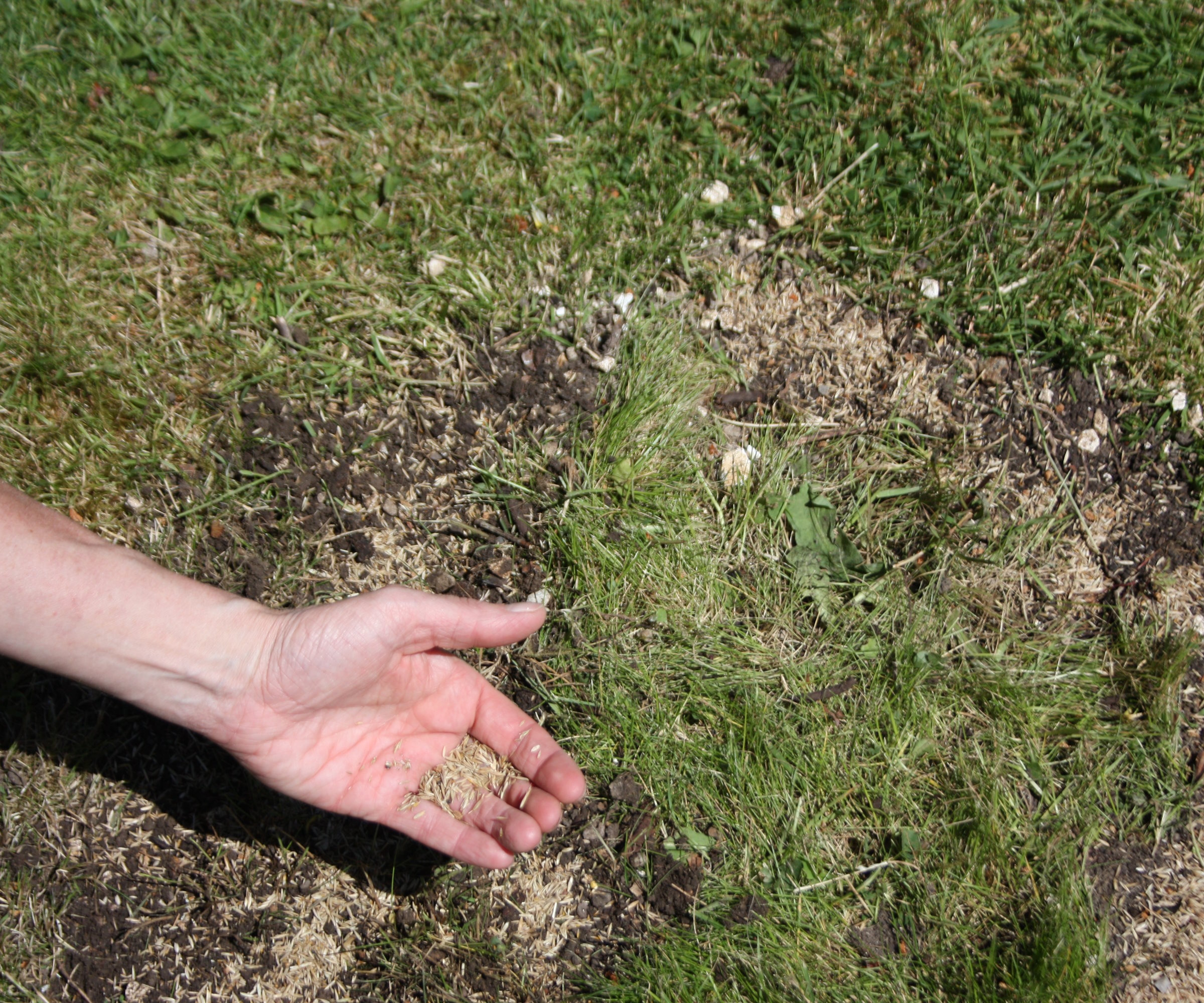
Bare patches can be sown from spring through to fall
When to sow cool season grass seed
The type of grass does play a part in dictating the best time to sow. For the best chance of success, it pays to know what is the best time for the particular type of grass that you are sowing.
Cool season grasses, such as Kentucky Bluegrass, Fescues, and Ryegrass, germinate best when the soil temperatures are between 50-65°F. This makes them an ideal grass seed to plant in early fall or spring.
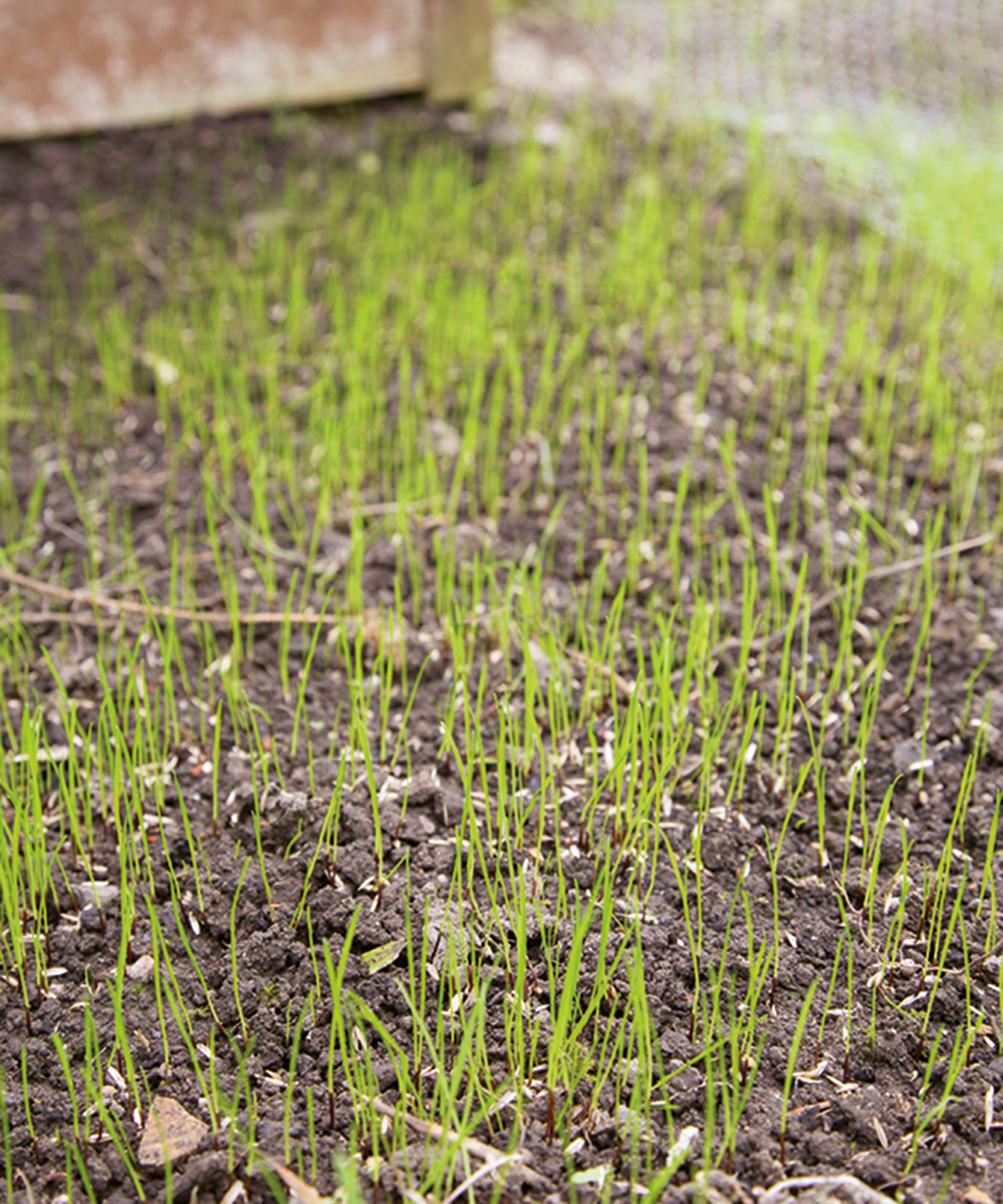
Grass seed will germinate quickly after sowing in moist soil
When to sow warm season grass seed
Warm-season grasses prefer temperatures to be a little bit higher than their cool-season counterparts. If you are wondering when to sow Bermuda grass seed or other warm season grasses like Zoysia and Centipede, they want temperatures in the minimum of 65-70°F. This makes them more suitable to be sown in late spring, or early summer at the latest - though will require more irrigation to get them established at this time.
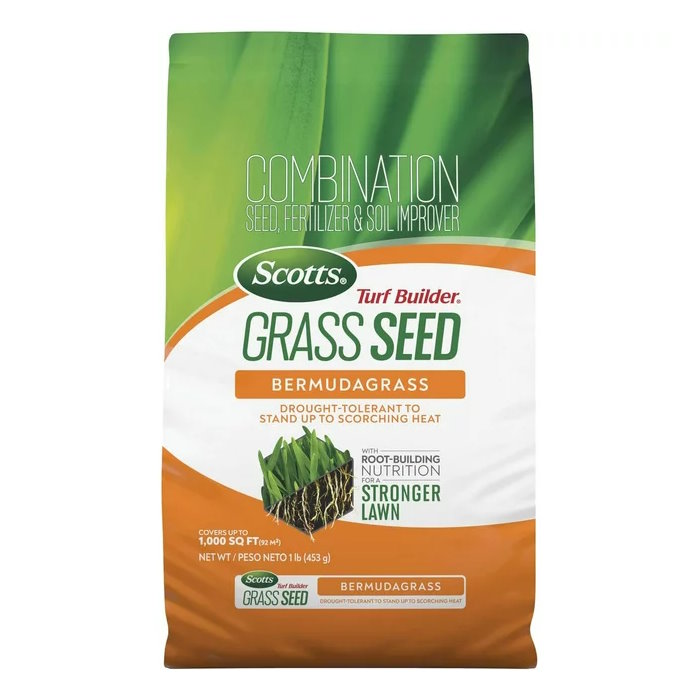
Scotts Turf Builder Bermudagrass Grass Seed has a mixture of grass seed, fertilizer, and soil improver to help establish deep roots and give you a thick, green lawn. A 1 lb. bag will cover 330 sq. ft. when seeding a new lawn or 1,000 sq. ft. when overseeding an existing lawn
FAQs
How do you prepare the ground for grass seed?
Whether you are laying a full lawn or repairing patches of grass, always properly prepare the ground before sowing grass seed. The area should be cleared of any weeds, stones, or debris, before being firmed and leveled. You can firm the ground using your feet, shuffling over it in several different directions, before leveling it using a garden rake.
Do you wet the soil before sowing grass seed?
The ground does need to be moist before sowing grass seed and this will help to encourage speedy germination. If the ground is dry, then water the soil several days ahead of planting, before a final soak the day before you plan to plant grass seed. You water well in advance to make sure it penetrates into the ground, this will be more beneficial than just light surface water before putting down the seed.
What is the best time of day to seed a lawn?
You can sow grass seed at any time of day and have success. It is best to avoid sowing grass seed in the heat of the midday sun, which can dry seedlings out quickly, or when it is very windy.
Skylar Christensen, a senior seed specialist at Nature’s Seed, admits there is ‘no strict rule’ about the best time of day to sow grass seed. He adds: ‘It's generally recommended to sow in the morning or late afternoon when temperatures are cooler and the soil is less likely to be dry.’
Can I put grass seed on top of grass?
If you are overseeding the lawn to help thicken the grass growth, or fill bare patches, then you can simply scatter grass seed over existing sections of grass. It is recommended to mow and aerate the lawn prior to overseeding. You then want to rake the seed afterwards to establish a good connection to the soil, prior to watering the area.
Many gardeners will struggle with birds eating grass seed after they have sown it. This is a problem during both the ideal sowing times of spring and fall. There are ways of protecting seed from being eaten by pesky birds, including covering it with lightweight horticultural fleece, available at Amazon. This creates a barrier that protects the seed from being nibbled and also insulates the seed and raises the ground temperature to aid germination.

Drew has worked as a writer since 2008 and was also a professional gardener for many years. As a trained horticulturist, he worked in prestigious historic gardens, including Hanbury Hall and the world-famous Hidcote Manor Garden. He also spent time as a specialist kitchen gardener at Soho Farmhouse and Netherby Hall, where he grew vegetables, fruit, herbs, and cut flowers for restaurants. Drew has written for numerous print and online publications and is an allotment holder and garden blogger. He is shortlisted for the Digital Gardening Writer of the Year at the 2025 Garden Media Guild Awards.
